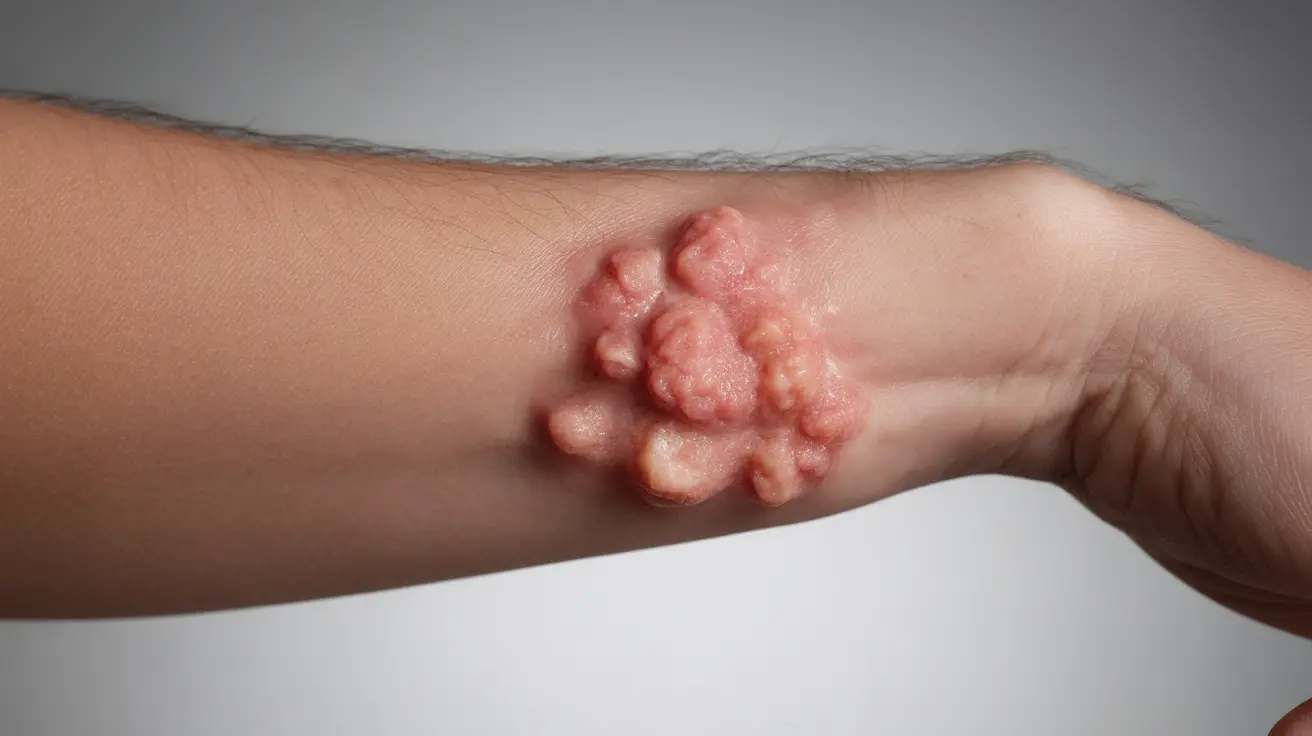Living with HIV can present various skin-related challenges, including the development of hives. These itchy, raised welts can be concerning for people with HIV, as they may indicate immune system changes, medication reactions, or other underlying issues. Understanding the connection between HIV and hives is crucial for proper management and knowing when to seek medical attention.
This comprehensive guide explores the relationship between HIV and hives, covering essential information about causes, treatments, and warning signs that require immediate medical attention.
The Connection Between HIV and Immune System Changes
HIV affects the body's immune system in ways that can trigger various skin reactions, including hives. The virus impacts CD4 cells, which play a crucial role in immune function, potentially leading to increased sensitivity to allergens and other triggers that can cause hives to develop.
Common immune-related factors that may contribute to hives in people with HIV include:
- Heightened immune system sensitivity
- Increased susceptibility to allergic reactions
- Compromised skin barrier function
- Altered inflammatory responses
Common Triggers for Hives in HIV-Positive Individuals
People living with HIV may experience hives due to various triggers, including:
- Antiretroviral medications
- Other prescription drugs
- Environmental allergens
- Viral or bacterial infections
- Stress and anxiety
- Food allergies
- Temperature changes
Medication-Related Hives
Antiretroviral therapy (ART) and other medications used to treat HIV-related conditions can sometimes trigger hive outbreaks. It's essential to work closely with healthcare providers to identify whether medications are causing the reaction and determine appropriate alternatives if necessary.
Treatment Options and Management Strategies
Several treatment approaches can help manage hives in people with HIV:
Immediate Relief Methods
- Antihistamines
- Topical corticosteroids
- Cool compresses
- Avoiding tight clothing
- Taking lukewarm baths with colloidal oatmeal
Long-term Management Strategies
Managing hives long-term often requires a comprehensive approach that includes:
- Regular medical monitoring
- Identifying and avoiding triggers
- Maintaining good skin care practices
- Stress management techniques
- Keeping a symptom diary
When to Seek Emergency Care
Certain symptoms warrant immediate medical attention:
- Difficulty breathing or swallowing
- Severe throat tightness
- Widespread swelling
- Dizziness or fainting
- Rapid pulse
- Severe chest pain
Frequently Asked Questions
- Why do people with HIV develop hives and how are they related to immune system changes?
People with HIV may develop hives due to their compromised immune system, which can become more reactive to various triggers. The virus affects CD4 cells, leading to altered immune responses and increased sensitivity to allergens and other stimuli that can trigger hive outbreaks.
- What are the best treatment options for managing hives in someone living with HIV?
The best treatment options typically include antihistamines, topical corticosteroids, and trigger avoidance. Working with healthcare providers to develop a personalized treatment plan is essential, as some treatments may need to be adjusted based on HIV medication interactions.
- How can I tell if hives in an HIV-positive person are caused by medications or other triggers?
Tracking when hives appear in relation to medication timing, keeping a detailed symptom diary, and noting exposure to potential triggers can help identify the cause. Healthcare providers may recommend temporary medication adjustments to determine if drugs are responsible.
- Can hives signal an HIV infection or worsening immune system function?
While hives alone aren't a definitive indicator of HIV infection or worsening immune function, persistent or severe hives should be evaluated by a healthcare provider. They may indicate changes in immune system function or other underlying health issues that need attention.
- When should someone with HIV and hives seek emergency medical care?
Emergency care is necessary if hives are accompanied by difficulty breathing, throat tightness, widespread swelling, dizziness, rapid pulse, or severe chest pain. These symptoms could indicate a severe allergic reaction requiring immediate medical intervention.




